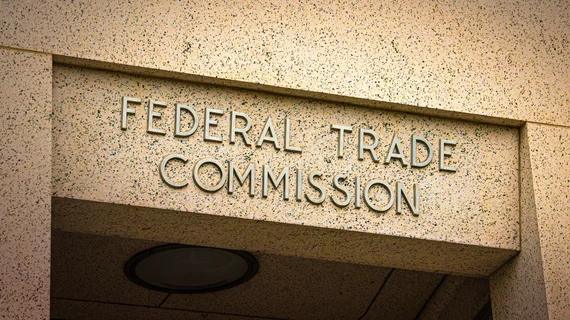FTC sues PBMs and GPOs for insulin price collusion
The Federal Trade Commission (FTC) is cracking down on the heavily consolidated pharmacy benefit manager (PBM) space for its anticompetitive practices, focusing a newly filed lawsuit on how these organizations have artificially propped up the price of insulin.
In a statement detailing the complaint, the FTC accuses CVS Health’s Caremark, Optum RX and Express Scripts of collusive business practices that rigged the "pharmaceutical supply chain competition in their favor, forcing patients to pay more for life-saving medication.”
All three organizations have parent companies that are also linked to the drug supply chain. Caremark is owned by CVS, Optum RX is a subsidiary of UnitedHealth Group, and Express Scripts is under the banner of Cigna. The FTC said these vertical integrations allow PBMs to control the price of vital drugs.
The lawsuit also includes the group purchasing organizations (GPO) of each PBM, as they too are under the umbrella of the same parent companies: Zinc Health is part of CVS, Emisar Pharma Services is owned by UnitedHealth, and Ascent Health is controlled by Cigna.
These affiliated GPOs acquire drugs at a discounted price for their respective PBMs, which then distribute them to pharmacies. In all three cases, this creates a conflict of interest that permeates the supply chain, with PBMs sitting directly in the middle, the FTC argued.
“As the complaint explains, the PBMs have created and [managed] a system in which drug manufacturers compete for formulary placement by raising—not lowering—drug list prices, so they can feed the higher rebates that PBMs demand,” Rahul Rao, deputy director, Bureau of Competition at the FTC, said in a separate statement. “This perverse system results in billions of dollars in rebates and fees for the PBMs and their health plan sponsor clients—but does so at the expense of certain vulnerable diabetic patients who must pay significantly more out-of-pocket for their critical medications.”
Insulin as a focal point
As an everyday business practices, PBMs and GPOs will often prioritize higher-costing drugs, because they benefit from manufacturer rebates. Ultimately, this leaves patients paying higher out-of-pocket prices, the FTC argued.
While the FTC is focused on insulin for this legal complaint, the problems it outlines speak to PBM practices more broadly and certainly apply to other drugs. The goal of the FTC is to use insulin to set a precedent that will stop these collusive business practices entirely, thus reducing healthcare premiums and the cost of drugs for patients.
To that end, the FTC is sending a warning to insulin manufacturers in its complaint, including Eli Lilly, Sanofi and Novo Nordisk. The agency said these companies have raised the price of drugs to counteract the rebates they offer, resulting in skyrocketing costs.
In his statement, Rao listed examples, such as how the “price of Lilly’s Humalog soared from $21 in 1999 to $274 in 2017—a staggering increase of more than 1200%.”
On a related note, the FTC pointed out that the price of insulin more than doubled between 2012 and 2018—and has been steadily rising since, arguably driven by the “hunger for rebates,” with PBMs ignoring lower-costing insulin options.
“Although not named in this case, all drug manufacturers should be on notice that their participation in the type of conduct challenged here can raise serious concerns, with a potential for significant consumer harm, and that the Bureau of Competition reserves the right to recommend naming drug manufacturers as defendants in any future enforcement actions over similar conduct,” Rao warned.
The full legal filing from the FTC will be made available on Monday.

